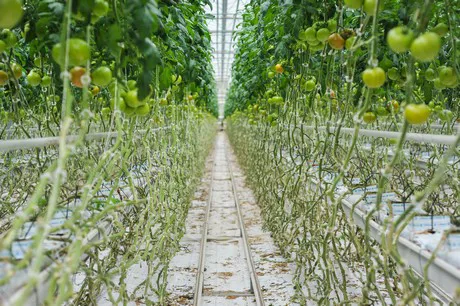Energy and power costs for greenhouse operators represents a substantial percentage of their overall operating costs. Canadian greenhouse vegetable producers rely on natural gas for a majority of their heating needs - and power of course is needed for the general operation and the lighting systems. The team with Sundara Energy talks us through the current challenges in the markets. "The overall market conditions at this time are difficult to navigate, making long term investment decisions a challenging task for many", Stephanie Freund explains. "On a positive note, we are seeing growers seeking out new and innovative opportunities in order to lower costs to remain competitive in a global market – and reflect a “greener” footprint as responsible business owners."
Sundara Energy provides commodity sourcing solutions for industrial, commercial, institutional (ICI) and governmental clients to meet current and future energy supply needs. It might be clear the horticultural industry is an important industry to them - with energy and power costs a focus point to growers.
Natural gas
"The natural gas prices have been favorable across most markets in Canada and along with pricing stability has enabled growers to budget out several years – many with potential expansion projects in their plans", Stephanie Freund, founder of Sundara, explains. "Lower cost fuel has been the result of an abundance of shale developments across the United States and new pipelines projects reaching markets with increased capacity. But despite this increased supply, there are constant challenges in the market.
"Infrastructure constraints remain a challenge to greenhouse operators in many markets where the demand is outpacing regional pipeline expansion projects. These lines take time to build and can leave rural customers waiting for years but the majority of natural gas suppliers have been very supportive and proactive in working with growers securing supply."

Carbon tax
Then there's the cost on carbon being taxed on fossil fuels, having a direct financial impact on growers. The Federal carbon taxation program took effect across most Canadian provinces on April 1 impacting major greenhouse regions - including Ontario. "Greenhouse operators in most provinces are eligible for a 80% exemption on the carbon fuel charge. While taxation programs and costs varies across markets - those costs are expected to rise each year as the carbon tax increases by $10/tonne until it hits $50 in 2022 — meaning those costs will more than double in less than three years' time. With a federal election coming in October – a change of government can alter policy with a strike of a pen - so stay tuned on the future of this controversial taxation program", Stephanie advises.
According to Stephanie there are currently few options available at this time to growers to mitigate the use of natural gas in their operations. "Unfortunately", she states. "New opportunity and technological developments are expected to fast-track over the next few years as a result of the cost of carbon as it spikes up the curve. The implementation of “greener” bio-fuels will be at forefront of options to reduce natural gas consumption. Biomass remains a viable option in markets where inexpensive feedstock can be sourced."
Also partnerships with neighbour industries to capture unused Cogen bi-products are increasing throughout the country and pilot projects are underway, introducing algae production technology.

Stephanie Freund with Sundara Energy
Power
Besides gas, also power costs are a focus point to growers. "High cost power is driving growers to look at the United States for expansion projects in most markets across Canada – especially Ontario", Stephanie says. "As in the case of natural gas, infrastructure constraints remain the most important challenge to greenhouse operators in many markets where the demand is outpacing regional expansion projects."
Currently many facilities are upgrading, converting to alternate crops and introducing grow lighting, resulting in demand outpacing supply. "Provincial programs have been offering some relief to operators but policies evolve with changes in governments – instability makes long term planning decisions difficult for operators."
Solutions
On-site power generation remains a viable option. "However, a throughout cost analysis is essential with the high cost of carbon being introduced on fuel."
Solar and geo-thermal also viable options where climate is favorable. "Across many markets, government policies are currently being revised with the input of major demand sectors – including the greenhouse sector."
Market conditions
Overall, the markets conditions at this time are difficult to navigate making long term investment decisions a challenging task for many. "On a positive note, we are seeing growers seeking out new and innovative opportunities in order to lower costs to remain competitive in a global market – and reflect a “greener” footprint as responsible business owners", says Stephanie.
"Developments in “greener” options to operate facilities are seeing support now at all levels at an increasing pace but requires major funding support from government. We are expecting that funds collected from the new carbon taxation program be recycled into funding for grants."
Then there's the federal carbon offset program, that was announced earlier this month and that will have a large emphasis on the agriculture sector in Canada. "The program is currently under development and expected to be rolled out by year end."
For more information: Sundara Energy
Sundara Energy
Stephanie Freund
P.O. Box 20077, Burlington ON L7P 0A4
T: 905.741.7505
F: 289.816.1457
www.sundaraenergy.com
